Britain’s most senior counter-terrorism officer has said that several plots this year to murder people on Britain’s streets “directed by or inspired by terrorism overseas” have already been disrupted, with police activity to prevent extremist attacks at its highest level for years.
Scotland Yard assistant commissioner Mark Rowley said Britain’s counter-terrorism network was battling increasing radicalisation via the internet, with fears that young British people are being brainwashed by material including depictions of beheadings, suicides, murder and torture.
About 50 people a week are being referred to deradicalisation programmes, the Guardian has been told. Activity to stop an attack was said by one source to be the highest since the aftermath of the 7 July 2005 attack on London’s transport system, with the threat level escalating as the year has worn on.
Rowley, head of specialist operations at Scotland Yard, has released one of the most comprehensive statements so far about the scale of the threat posed to Britain by the rise of Islamist extremism in Syria and Iraq, where Islamic State (Isis) has come to prominence and taunted the west with depictions of brutality using social media. “The volume, range and pace of counter-terrorism activity has undergone a step-change,” Rowley said.
In his statement, he revealed:
There have been 218 terror-related arrests so far this year, a significant increase, as a result of police “running exceptionally high numbers of counter-terrorism investigations”.
So far, 16 people have been charged after returning from Syria.
There are 66 missing persons reported to police by their families worried that they may have travelled to Syria.
Officials are removing 1,000 pieces of illegal content from the internet each week. The material includes videos of beheadings and other brutal murders, torture and suicides. Over 80% of the material removed is related to Iraq and Syria, police said.
There are 100 Syria-related “preventative activities” each week.
It is nearly impossible to independently verify claims of the scale of threat to Britain made by senior counter-terrorism officials, and mistrust among sections of the public remains high.
Rowley’s stark assessment comes as the security and law enforcement establishment argue for greater mass surveillance powers on communications data. But what is clear is that across government, police and security services the level of concern and activity to thwart an attack on Britain and radicalisation of young Muslims has significantly increased this year, as extremists have advanced in Syria and Iraq. Up to 500 Britons are estimated to have travelled to Syria.
Rowley said: “So far this year we have made 218 arrests and are running exceptionally high numbers of counter-terrorism investigations, the likes of which we have not seen for several years.
“Against an increasing operational tempo we are disrupting several attack plots a year. These plots are of varied sophistication, from individuals planning to carry out spontaneous yet deadly attacks to more complex conspiracies, almost all seemingly either directed by or inspired by terrorism overseas.”
Within the past fortnight police arrested people over a suspected plot, possibly involving firearms, which they believe had links to Syria and Isis. Seven people continue to be held after being arrested in London, with two released earlier this week.
A separate investigation led to arrests on Tuesday at addresses across southern England, including in London and Portsmouth.
The Islamist terror threat has twice claimed lives on Britain’s streets. The 2005 London attacks by four suicide bombers killed 52 people and left 750 injured while Lee Rigby was butchered near the Woolwich military barracks in south London in May 2013 by Michael Adebolajo and Michael Adebowlale who spent just over £50 buying knives from an Argos store.
As well as countering the threat from those determined to carry out violence, efforts are intensifying to stop those numbers growing.
Rowley said 100 “Syria-related preventative activities” were being carried out every week, with more than half being interventions such as referrals into de-radicalisation programmes that provide support for vulnerable people, including housing, education, employment and mental health assessments.
Other activity includes work in mosques and work to encourage Muslim communities to inform the police about those they have concerns about.
“The growing problem of young, impressionable, and in some cases vulnerable individuals being radicalised on-line is an increasing risk,” Rowley said. “Extremist groups are using social media in highly sophisticated ways in order to recruit or persuade individuals towards their violent and warped ideologies.”
One senior source said: “Syria, Isis and the material on the web and its ability to radicalise people: that’s the game-changer. Before it was person to person [radicalisation into violence] but now it’s the web.”
Rowley said the counter-terrorism internet referral unit had taken down over 1,000 pieces of illegal content from the internet every week, including videos of beheadings and other brutal murders, torture and suicides.
The police statement continued: “Over 80% of the material removed is Iraq- and Syria-related. In the last four years the unit has ensured that 51,000 pieces of illegal and deeply damaging material have been removed.”
Britain has experience of internet material leading to violence. In the case of Roshonara Choudhry , 21, material she saw on YouTube from extremist preacher Anwar al-Awlaki led her in 2010 to drop her studies at university to attempt to assassinate the Labour MP Stephen Timms as punishment for his support of the Iraq war.
In August the terrorist level was raised to its second highest level of severe. The home secretary, Theresa May, said the heightened alert was “related to developments in Syria and Iraq, where terrorist groups are planning attacks against the west”.
Last week it was announced that police had been warned about their own safety following detection of chatter about a potential targeting of an officer.
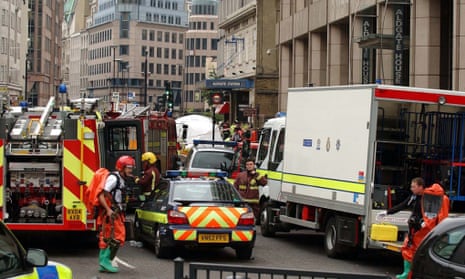
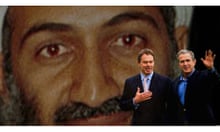

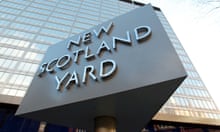
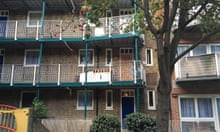
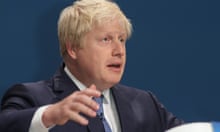
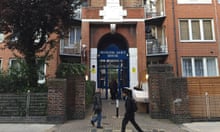
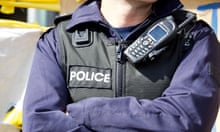
Comments (…)
Sign in or create your Guardian account to join the discussion